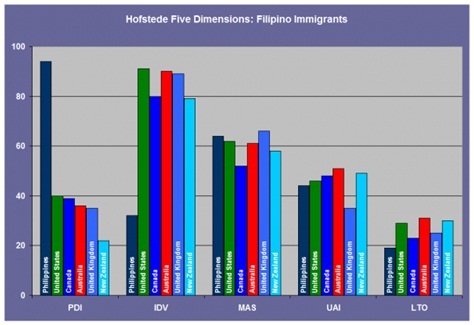- Business Concepts ›
- Marketing and Strategy ›
- Cultural Dimensions Hofstede
Cultural Dimensions Hofstede
Definition & Meaning
This article covers meaning & overview of Cultural Dimensions Hofstede from marketing perspective.
What is meant by Cultural Dimensions Hofstede?
Geert H. Hofstede is well known for his cultural dimensions theory. He proposed five factors which define the culture of a country. These factors also determine the difference between two cultures. This theory becomes very relevant today as the culture difference needs to be taken into consideration while dealing with different countries. The factors are as follows:
- Power-Distance (PDI): This factor shows how the people in that culture expect the power distribution in an organization.
For example: A person in high power distance cultures accept large difference in power and status, and accept the decisions taken by the higher officials. The distribution of wealth and population predict this factor.
- Collectivism vs. Individualism (IDV): The factor describes whether the people in that culture prefer to work in collective fashion or individually. This can be predicted by the economic development of the country. It has been observed that people in economically poor or developing countries prefer collectivism over individualism.
- Femininity vs. Masculinity (MAS): This factor tells whether the culture values traits like assertiveness, achievement and acquisition (Masculinity) or it gives more importance to social support, caring for others and quality of life (Femininity).
For example: US is high on masculinity.
- Uncertainty Avoidance (UAI): The factor shows whether the people like to take risk or not. The risk-averse people will score low on this factor. This can further be analyzed to find the roles that will suit the people of such culture
- Long term vs. Short term orientation (LTO): This shows whether the people of the particular culture prefer short term gains over long term gains.
The following chart gives the comparative scores of a few countries on these parameters

Hence, this concludes the definition of Cultural Dimensions Hofstede along with its overview.
This article has been researched & authored by the Business Concepts Team which comprises of MBA students, management professionals, and industry experts. It has been reviewed & published by the MBA Skool Team. The content on MBA Skool has been created for educational & academic purpose only.
Browse the definition and meaning of more similar terms. The Management Dictionary covers over 1800 business concepts from 5 categories.
Continue Reading:
What is MBA Skool?About Us
MBA Skool is a Knowledge Resource for Management Students, Aspirants & Professionals.
Business Courses
Quizzes & Skills
Quizzes test your expertise in business and Skill tests evaluate your management traits
Related Content
All Business Sections
Write for Us